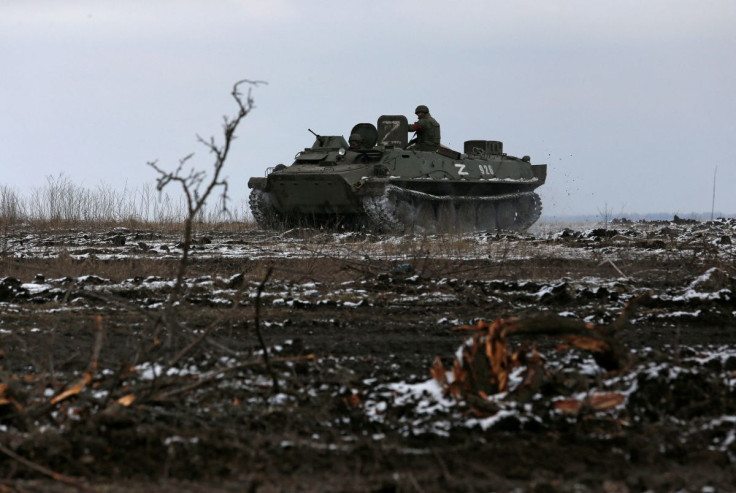Latvia Outlaws Using Letter 'Z' As A Symbol Supporting Russia's Ukraine War

Latvia's parliament on Thursday voted to ban public displays of the letter "Z," saying it was a symbol that was used to glorify the Russian invasion of Ukraine.
Russian military vehicles in Ukraine are prominently marked with the letter, and it has started appearing on social media and on clothing elsewhere in support of the war.
Latvia's parliament said the display of the letter with intent to justify military aggression and war crimes would be punished under the new rules with fines of up to 350 euros ($388) for individuals and up to 2,900 euros ($3,214) for companies.
Once it becomes law, the new legislation will also apply to the letter "V," also used by the Russian defence ministry in connection with the war.
"Condemning Russia's hostilities in Ukraine, we must take a firm stand that symbols glorifying Russian military aggression, such as the letters 'Z', 'V' or other symbols used for this purpose, have no place in public events," said the chair of parliamentary Human Rights committee Artuss Kaimins.
Russian President Vladimir Putin sent his troops into Ukraine on what he calls a "special military operation" to demilitarise and "denazify" Ukraine. Ukraine and the West say Putin launched an unprovoked war of aggression.
Ukrainian Foreign Minister Dmytro Kuleba on Tuesday called for a universal ban of the political use of the letter "Z," saying it signified "Russian war crimes, bombed out cities, thousands of murdered Ukrainians."
The Russian defence ministry has posted on social media that "Z" stands for a phrase meaning "for victory" and "V" for the phrases "truth is strength" or "task will be completed".
Neither letter exists in the Russian alphabet.
In a move designed to affect the annual marches in Latvian capitol Riga on May 9, when Russia celebrates victory in World War Two, the Latvian parliament also voted on Thursday to ban public events within 200 meters of Soviet war memorials.
Tens of thousands flock each year to a 79-meter (259-foot) high Soviet-built obelisk in the capital Riga for events attended by Russia's ambassador but shunned by Latvia's top leadership. Around a quarter of Latvia's population is ethnically Russian.
Latvia, together with neighbours Estonia and Lithuania, maintains Russia used the victory over Nazi Germany to forcefully incorporate the region into Soviet Union.
"May 9 is a festivity in the aggressor country Russia. This is not a Latvian festivity. Marking it means supporting international crime", President Eglis Levits tweeted last week.
($1 = 0.9024 euros)
© Copyright Thomson Reuters 2024. All rights reserved.





















